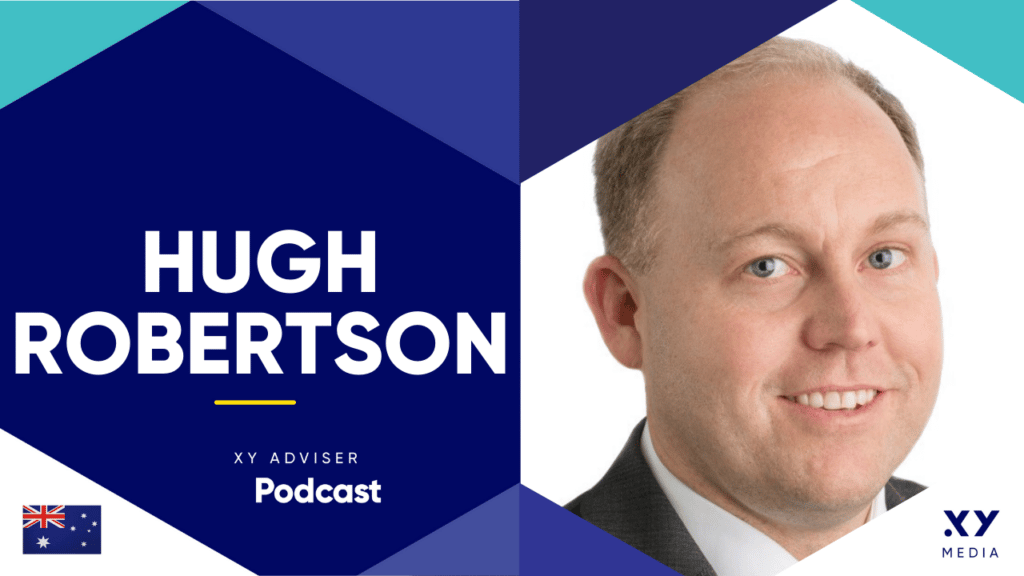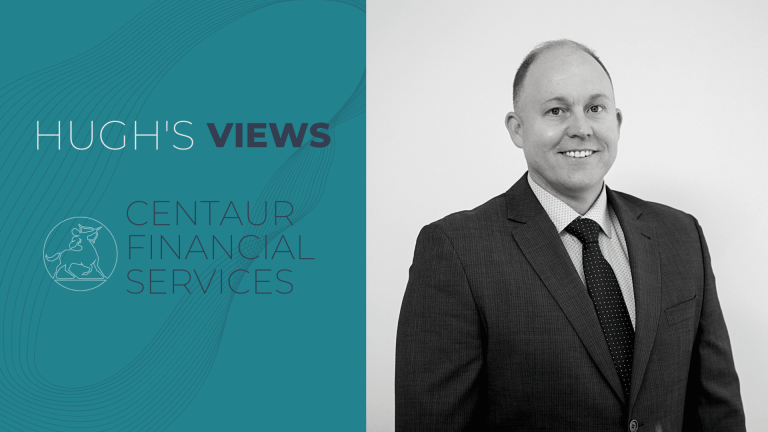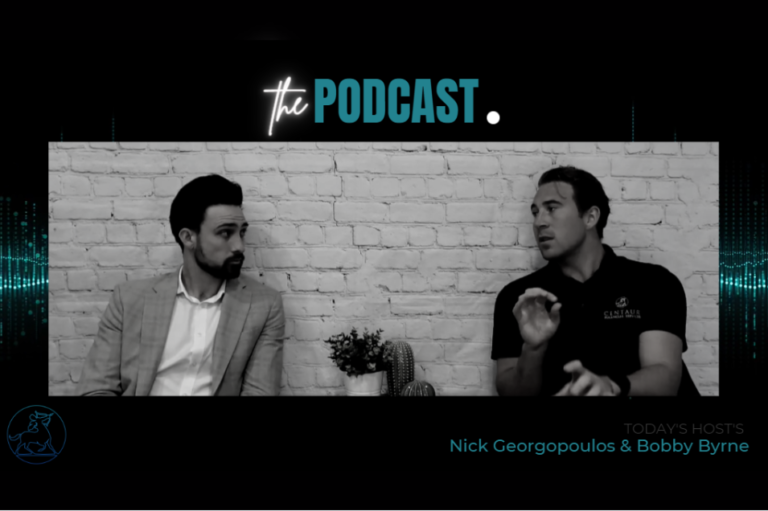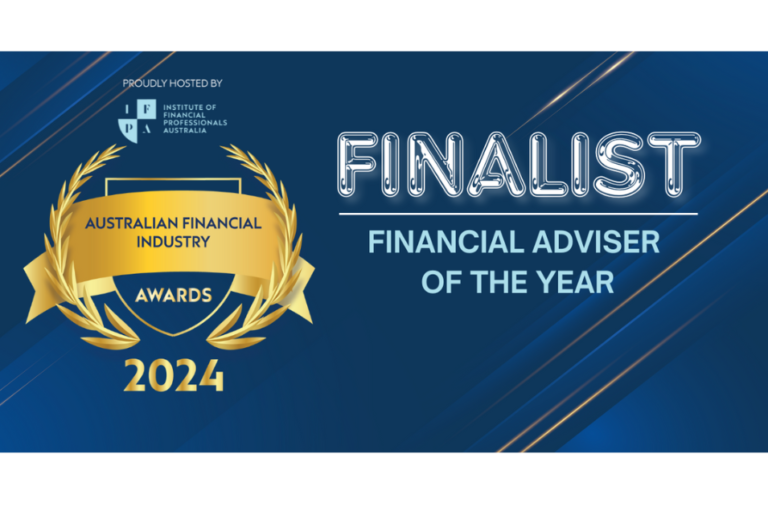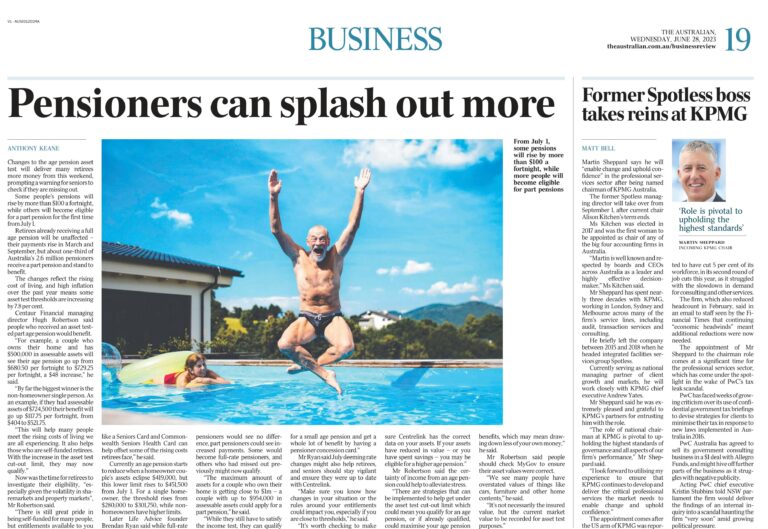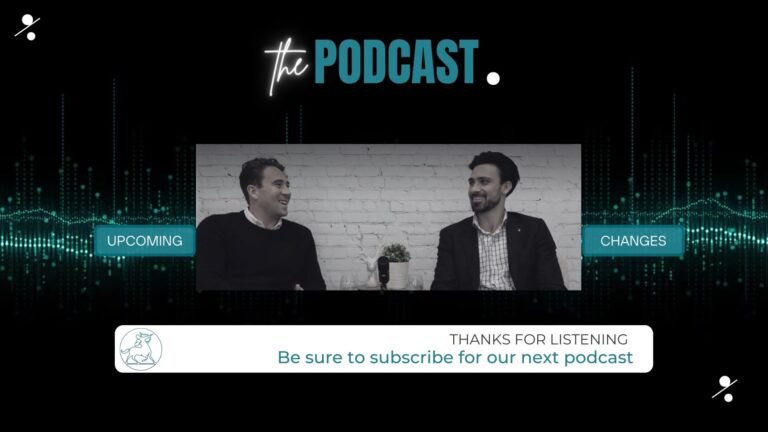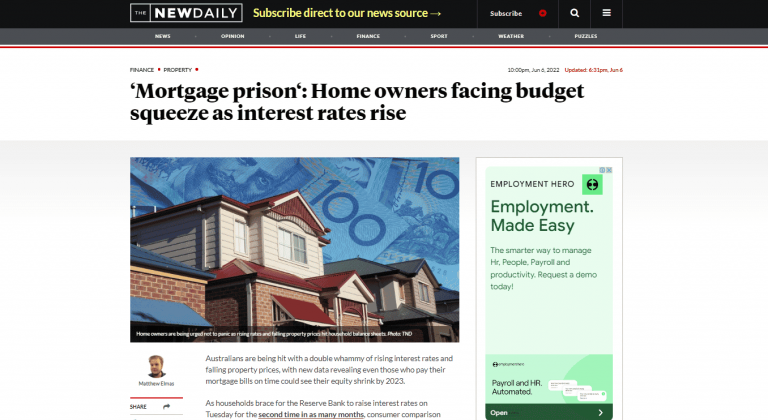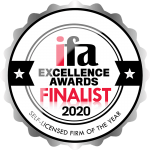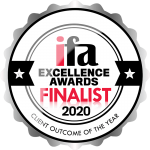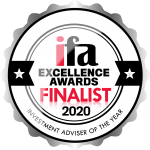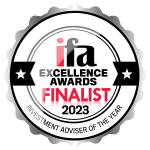Our very own Hugh Robertson joins Ben Nash in XY Adviser’s Podcast #285.
Hugh sits down with Ben Nash from the XY Adviser and talks about defining roles and setting expectations internally to ensure our service agreement is met, and how Centaur has evolved as a result.
You can listen to the podcast by clicking below:
Or visit the XY Adviser by clicking here.
Transcript below:
Ben Nash
Hey guys, Ben Nash from the XY advisor team. And today, I’m pumped to be here with a Sherpa of mine, Hugh Robertson. Hugh is an MD, he told me not to say that he’s a financial advisor, but he is actually a financial advisor, and the founder of Centaur Financial Services, they’re based out in the Gold Coast, he’s won basically every award you could possibly win. So comes with a wealth of experience, and I am pumped to pick his brain – business, hiring, and growth, Hugh thanks for joining us, buddy.
Hugh Robertson
Thank you for having me. Good to be here. 20 minutes talking about all this stuff. So
Ben Nash
I know. We should have had the camera fired up for that, that pre chat but Mate, I’m keen to pick your brain on some of the things that have been driving your business growth. But before we do, came to talk about hiring, recruiting, and team stuff, because I think you like me, you know, you, you recognize that at a certain point you’re your business essentially becomes your team. And particularly in the current environment, I know that you’re hiring and looking for advisors at the moment we’ve been on the same path for the last little bit. And yeah, it’s, you know, a challenging proposition. I think at any time finding the right person, right, fit for your business, right? culture fit, right fit for the clients, all that sort of stuff. So what but I think a good place to start, like, what are some of the lessons that you’ve learned on the hiring journey? And in particular, like when you’re looking at advisors, and how they might fit into your business?
Hugh Robertson
Yeah, I think it’s probably one of the big topical issues within our industry. Now, there are a lot of firms that have had some pretty tremendous growth. And from our perspective, it’s probably also our journey was one of the small business that started, you know, one person to person than three people. And so it was quite nimble, quite a lot of shared roles, shared responsibility, kind of all hands on deck approach, as you grow, you know that the dynamics change rather than being to people like you communications always 100% It’s bang on, when it’s three people, it can start to get a bit unclear when it’s for when it’s five when it’s 610, you can really start to get some unclear communication and what that from the in terms of how we’ve started to change businesses, we’ve had to be a lot more definitive in job roles, like who does what, what’s your accountability piece? What’s your responsibility piece? You know, we’ve had to really get ourselves into shape in terms of that, and give people a lot more of a clear pathway in what’s there for them, whereas traditionally, it was probably, you know, well, our vision is let’s, you know, serve clients. Let’s do that. And that should be the answer everything more, did you serve the client? Yes, she did. Great. Now, we’ve a lot more specifics in terms of our hiring journey, we’ve really evolved and become more of a business rather than just a place that helps people, we’ve really had to become more business-minded, that’s men, figuring out how we’re going to structure stuff, remuneration, bonus incentives, things like that, in terms of a balanced scorecard approach, what that means for individual contributors, such as advisors, what that means for the team terms of the back office, how we can remunerate them how we can sort of set targets and set goals that might not necessarily be 100%. Financial, from the perspective as well signed to be very, very clear, without, without team on what the expectations are, you know? And also, how are we going to grow their career here, the one thing we don’t want to do is, when you when you come into Central, we want to have you for you know, if you’re in a great player, we want you forever. And so but how are we going to give you your best career while here whereas I suppose, you know, in our, in our version one, like networks often refer to centers now, we’re Central 2.0, we were 1.0. But how are we going to give you your best career? How are we going to grow that, whereas in one point, it was all about the client, and you suit the client. Now, we all know that the labor markets taught, but it’s about going alright, well, how are you going to get your best career, but in something that’s also going to be profitable? For central there’s no point as paying out a ridiculous salary to someone, but they’re not culturally aligned, they’re not values aligned. And what’s been the big thing for us is just going are they’ve got to be a fit, but if they are a fit, then it will be what will be good for them.
Ben Nash
Made if that was 1.0, then I think we all better look out because that was a pretty solid 1.0. But I still remember a conversation that we had was probably like a couple of years ago or something and your business was set up in a way that you had, you know, great word of mouth from the great work you’ve been doing with your clients. steady flows of clients coming in, you had a couple of sidekicks that were guns of what they did to support you in what you were doing. And, you know, you’d go in and be the magic man and go and, you know, chat to clients, and then the team would take over and, and, and sort of drive everything that sat around that. What was the shift that then led you because your business was reasonably mature at that point in? Like, what was the shift that’s led you to push on with the growth advisor hiring as well,
Hugh Robertson
I suppose I’ve, I’ve always been an ambitious person. I think most people that play sport and things like that we’re quite competitive and, and you want to succeed. And probably without your own definition of successes, you just chase cars, probably things as well, isn’t that we just grew too fast. And then when we were talking to people, like our team, you know, people just want to start to experience different things in their role they didn’t want to be some of them want to be advisors, some of them want to have more responsibility in what they did. So to give them the career that they wanted, you know, we used to always joke that centers, the Choose Your Own Adventure. So if you want to be an advisor, well, let me know. And we will then bring in another client services, you know, obviously, our commission education centers, things like that got boarding. But our guys were already ahead of that in terms of doing training. So it became one of talking with the guys about what they wanted. Some of them want to be financial advisors, because I thought they might get more flexibility. Some of them just, yeah, that just haven’t had that career path planned. So probably, number one, talking to them what they wanted. Number two, we just grew too fast for couldn’t be that I could be all things to all people, even with a great cast. And then you go to the point, as you know, like for kids, families, a massive driver for me. So I didn’t, I’ve done one center to be all around. And it certainly isn’t nowadays. But I don’t want to be all about Q Robertson, I don’t that’s not the business we want. Because then people always expect to see you, our clients to know that no matter who they saw in the team, they’re going to be well taken care of. And there wasn’t any mistake in having him as an advisor as opposed to someone else. And that’s what we’re really trying to drive. It’s a long process when any businesses typically been built by one personality, you may be aware, it’s a trend, it’s a transition that takes time. And once clients can understand that, that’s what the business is, and you’re very clear in your expectations and your delivery, then they’re okay with it, you just got to be very clear in your communication.
Ben Nash
When you had four great opportunities to start that transition, I know I missed the first opportunity with our first child. But by the time the second one rolled around, I did definitely use that. And in a similar spot where the because I put out so much content and I end up being the face of people wealth as a brand, then yeah, people do have that expectation, but like you got double the handful that I do with your tribe, but definitely I think people understand that, you know, the people that you the support, you are people and I’m sure you know, you’ve got professionals around you in your life that help you with different things like everyone recognizes that I think sometimes we fall into the trap of thinking that we have to be the person and you know, no one else can do it the way that we do or support the clients in the same way. But especially as you’ve got a growing business, I recognize that other people can actually do better than me because they’re more available and they’re more responsive, and they don’t have the same competing priorities and urgent things to work on. That we do. So I I’ve found for us that the clients are really understood that and so long as they’re confident that there is a solid machine in place that ensures that the i’s are dotted and T’s crossed. And there’s consistency in services that it doesn’t matter so much who’s delivering the advice, or the jokes at the front end are the funniest just for the record.
Hugh Robertson
That’s why kids you can have dad jokes now they’re funny. I agree fundamentally with that. I think that because you’re built, you built your business on sweat equity, so you don’t really know another way. And that mindset shift, to start to move yourself out of it and go, okay, the team is more important than the individual and things like that and go, right, this, this will and have you’ve got to have a bit of blind faith that all work. You’ve got to have that. And for me the moments where I probably saw it was when I was away on paternity leave or something like that, which is to an extent, you know, we’re very lucky to all be able to take some time off with our family. But it’s almost forced because you haven’t taken many holidays or that in years gone by, and then realizing, you know, the team, the first week might call you 10 times a day about things that happen. And then you start to all these times you start to learn, okay, well, we need to build a process for this, I need to build a process this is. So that’s, that’s your time to go. All right, make those notes now of what needs to change, so you can automate as much as possible. And then once you can build your system, there’s a real beauty in that, because now you can see what’s going wrong, and make fixes to it. So if you don’t have your documented written down now, then you can never enhance it or iterate it. And that’s, you know, so we’ve got to get it out of our heads into software onto a bit of paper so that we can then go, Okay, everyone, like, you know, criticize this critique, what are we doing wrong? And, for us, that’s kind of what’s happened every time I’ve gone away, and we can’t just rely on what’s in my mind, which is, which is scary.
Ben Nash
Absolutely. And sometimes you just got to wait for something to break as well. Because with the with any sort of service based business, or I suppose pretty much with any business, like, there’s so many things to think about that if you even if you start with that blank piece of paper, that it’s you can’t anticipate everything that might happen that sometimes and as much as we stress ourselves out, and a lot of times that are this thing, or what happens if this or what happens if that at the end of the day is something happens or when something happens, you go okay, well, there’s something there. Now, that’s, that’s identified that we need to we need that process or we need that solution around it. So definitely got some good advice from another business owner, really successful guy that I know. And very different businesses, but the same thing, just get out of the way, let stuff happen. And then people will lead to find solutions. So you’ll identify that there is an issue that needs to be addressed. And then you address the issue, it’s certainly a lot more, a lot, a lot faster and easier than trying to, yeah, sort of unpack every single potential process in your business. But I found for us recently, because we’ve been heavily focused on the team, you know, similar thing to you in that you grow from this, like a micro business into a small business. Not really sure what the definition is there. But a business that requires that extra level of structure around the team, where it’s not just you know, a couple of people where you can just lean in and fix and adjust things. And also that the people in the business that they’re in more discrete roles that don’t always understand, you know, every single function in the business. And I found for us, you touched on progression plans and development of the team. And for, for me, that was a total game changer in that you sit down and unpack with the team, you know, what? Where do they want to go from an income perspective, from a career perspective, from a skill set perspective, from a seat perspective, but even then, within the seats for you, more senior people like what is the sort of clients that they want to be working with? What is the sort of work that they want to be doing and one of the really good things about a growing business that I’ve come to realize is that there’s a lot of opportunity for people to go anywhere, you want to focus on operations, great focus on operations, you want to be ripping advisor and just bang out advice all day, every day, happy days, if you want to be an admin person to go into paraplanning go into CSR to go into associated advisor, whatever, that it’s all there. So I think as a, as a leader in a business, it’s easy that you see all of this in your head, and you don’t always articulate it and unpack it with the team. And sometimes they do. They don’t obviously know all the stuff that you’re thinking about how the future might work. What do you think, though, that on top of progression plans, what are the other things that have moved the dial the most in terms of your team flow? And how you guys work together effectively as a unit?
Hugh Robertson
I think long with Yeah, communication is expectations. So we’re pretty clear that we want to be the best in what we do. So our culture is that we expect excellence, we don’t high level of accountability to everyone. So you know, we’ve we’re not, we’re not in our firm that’s going to make excuses. If you haven’t got it done. You were. And that’s been really important to me because I’m not someone who’s good with excuses. That’s the client. The clients have priority and if something hasn’t got done, but the reason how we can get through that is our meeting and our huddles like, you know, your morning meetings, you talk about that there’s got to be the tango, it’s got to trust each other. The thing is, you get bigger and as you said, these discrete roles. You know, we’ve got to trust when someone’s either not in the office and in the hybrid working arrangement. If someone’s not in the office, or someone’s, you know, saying that they’re busy and they can’t get something done today. Our expectation is that someone else in the team who doesn’t have as much on will go well hang on. I can pick that up for you, I can do that today. So that’s how you get. But we’ve got to make sure everyone’s trusting what each other is doing. So from the point of accountability, from the point of us having our meeting talking about our top three things, what have we got on? What’s, what are our stocks? Where are we stuck on anything? Simple stuff up. It matters. You know, today, someone’s away. Our reception says Why, and then, you know, the effectively the person who’s kind of the operations manager, she just got in and she just went reception, she could have easily asked two people who, to some extent a subordinate to her to do it. But she’s like, well, I know they’ve got work to do. And there will be distractions with phone calls. So I’ll go and do it. And that that’s what we want in leadership positions in the business that I didn’t need to ask them. They’ve, I’ve empowered them times where you’re saying you’ve empowered them to make decisions. And, you know, they make the right decisions. And if they if you’ve got team members who aren’t making the right decisions, then, you know, there’s a more difficult conversation you’re going to have around that. So we’ve certainly been there when he talked about before the seats on the bus, for me, I really need the right people in the right seats on the bus. And if they’re not, we’ll make those difficult decisions to say, Well, hang on, we won’t be able to achieve our purpose and our vision, our goals, if we don’t have those right people. And sometimes that might mean you get rid of a superstar. But that might be what needs to happen within your business in order for the team to grow. Because you need everyone like everyone’s got to be firing to work well. And that’s the whole, you know, you’re only as good as your weakest link. So you’ve got to it’s that fine line. I lean on, there was a really good book by Jack Welsh. Years and years ago, who was the GE CEO? Oh, yeah. Well, Jack straight from the gut. It was really good on management, like it was one of those good books I read really early in my career where I mean, okay, it’s interesting. It’s always hard to necessarily just do what you get from those big businesses like, GE has got a very different staffing HR marketing budget towards center has. So that’s always challenging to read it to think, how would you apply it your level, but effectively, the teamwork and the trust, and that all happens in meetings? So you got to get a good meeting and huddle routine happening? It is because if you don’t have that, then people will start going, Well, where are they? Why are they leaving early today? And you want to have that trust, if someone leaves early to go take care of their kids, that they’ve done their work. And so that’s how those became really important, it came out of, you know, so we were doing them before COVID, but out of COVID. And we’ve just learned that when we get a bit slack on them, and maybe don’t do them as much we start to, you know, things pop up and people who are stuck on stuff don’t ask and then timelines out SLAs to clients can sort of extend
Ben Nash
totally, and it’s easy. When stuff is busy that you’ve fallen, I know that I’ve been there that you fall into that trap of going on too busy for that meeting. But it’s like it’s those times now business coach has been banging on about this for years, that’s like, those are the times that you need to double down on meetings and be doing more meetings, because there’s more stuff going on, and more things that can slip in the absence of them. So that’s definitely been not much of one for internal meetings. I like to get stuff done like it historically that I always want to focus on that. But I realized more and more that it is mission critical to how we work together. Because like you say you can have superstars that are great at a role that if you’re not great as part of the team, especially in the service business, where it’s like you got a lot of people touching parts of the process and the words and it’s just all mission critical to achieving collectively the output that you want to shift gears a little bit because I know your business been around for a long time. I know you look very youthful, incredibly, in fact, but there’s a bit of longevity there. So tell me what would you say when you think about what you actually deliver for clients? What’s, what’s changed over that time?
Hugh Robertson
I think a good, good question. The Evolution has been, we’ve become more expert at what we do. And we’ve got the confidence and conviction what we say, I think when I was younger clients would second guess a lot of things because I’m I want to get along with people my natural personality is to want to be helpful, be friendly. And in our world that can be quite, quite troublesome when people say things at you know, are we thinking this, we’re doing that we want to do this and you’re young, you know, maybe you’re in your mid 20s, late 20s. And you kind of they’re going oh, I wouldn’t do this advice. And but you kind of go well it can kind of work and if you do this and then maybe the outcome isn’t good for a client and then they come back oh, well, you didn’t say don’t do it. And You know, I’m not sure that I ever went down that path. But I certainly felt like that a long time. Early in my career that I just didn’t want to say no to people. And then I kind of, after having a few years in the sea, I started to you start to get trends of personality types, you start to get trends of stuff where people can lose money. And, and you sort of realize that there’s this. There’s a reason long-term principles or long-term principles, they work. And evolution became really distilled to knowing what the principles are, making sure we’re always well educated. And then really, for us, we really just started talking on people’s goals, because it didn’t matter. If you’re, you know, we still sort of go on about if you’re going to get, you know, what’s the difference between a 10% return and 5% return, if you don’t know what you got to you’re trying to achieve? If you could get there with less risk, why take more risk. And so for us, the big thing on that was really start to engage with clients with conversations around what’s important to them. And this kind of goes to what the whole value is based and biases and all of these goals-based advice. And but it seems intuitively that that’s what, that’s what we should be having the conversations with clients about. And if we’re experts, we will then be able to provide the solution for them to achieve their goals, not necessarily achieve a financial outcome, they got 10% This year, what does that mean? So, you know, going through goals, and really starting to provide some context around what they’re trying to achieve, what’s the importance of it, and that, that has really built us into being the trusted adviser. So you look at you know, our referrals by clients, and all of this is still really hard, but it’s because they trust our advice, markets gone volatile right now. We’re communicating to them saying, look, you know, this is what’s happening right now, we’re not, we’re not saying the market is going to be great. We’re not saying it’s going to be bad, but he’s communication. So you’re not going to have to turn to someone else when markets are bad. And why don’t one of my sort of always Peeves has been when things are good, people are saying, look what I did for you look how good we were for you. But then when times are bad, we get a advisor who doesn’t return our calls. And I think, like, if I get someone, if we get a client in our door, where the client hasn’t returned the call or hasn’t seen them, then, as far as I’m concerned, that forfeited that client. Because people in that in that are in our industry, I want them to hold the highest professional, not to duck from class, because they trusted us with their life savings. So it’s not an insignificant role. That’s known. I think, I know, it’s, we’re in a pretty stressful job. But from from our point of view, I think it’s just been the evolution of us taking on the roles of professional and now sort of having that experience to be able to say, Hey, this is what you should do in this scenario. And we even if you look at our website, we talked about, you know, we’re trying to maximize the probability of you achieving your, your goals. So it’s not, we’re not going to double your return, we’re not going to give you $10 million. And even now, with the language, I sort of think, you know, the goals that are possible for you like, because you can’t just go I want a Ferrari for 120 grand a year necessarily. Yeah. That’s the end being honest with people if they can achieve a tiller. Because I’d rather know and I always think if you went to a doctor, like a specialist, I’d want to know, early on what was wrong, I’d, I don’t really need to know the surgery or whatever that they’re gonna do. I want to know the outcome. And I think in terms of advice, it’s the same, they don’t need to necessarily know the ins and outs of everything we do. They just want the outcome.
Ben Nash
Absolutely. And I think that really like you say, that some people can’t do everything. But I was fortunate that one of the lessons that I learned early on from another advisor has mentored me, in my first role in the industry was to talk about what you mentioned, where people are doing things that you know, is there’s, you know, there’s decisions that are consistent with what you would suggest, there’s decisions that are not necessarily bad decisions, but just inconsistent with your philosophies. And then there are decisions that you think, are bad decisions. And the other lesson was that any time like did the making sure that you’re sort of discussing those differences with clients and especially calling out when someone’s doing something that you think is a bad idea? So that if it does turn around and bite them afterwards that you can say, look, it’s obvious it’s up to the client and they’re making their own financial decisions, but when at least you call it out say, look, I wouldn’t do this if I was in your position of course you can. But then that way, you’re sort of giving them that that foresight and yeah, yeah, ultimately helping them to make their own their own call, but not being on the hook or not saying anything. I can say that you are the trusted adviser,
Hugh Robertson
Or you’ve been through the net, you’ve now got client stories, too. So as we as you go through it a bit you can say hey, I saw the guy before the GFC they never want to put small business owner killing it, but never want to put money into super because he said his business was his super GFC wiped his business and he had no super. So you know, I, I wouldn’t want to see you go down that same pathway. And those stories help because a lot of people can’t put the numbers together, you know, as well as you. That’s our it’s about necessarily giving them some case studies of sorts client stories, and, and again, that builds trust you can you don’t need to say no, don’t do it. But you can say, hey, I’m concerned for this. And I think also learning to ask more questions. We don’t necessarily have to have the answer for everyone. Sometimes it’s just, let’s talk about it. And there is no answer that you can give it I think some of the junior advisors might think that they’ve got to be the expert. I think if you went for people who they might see as the experts, half the time those advisors are in rooms. I know, I don’t know the answer. But what do you think? And that’s okay, that’s an acceptable answer.
Ben Nash
Absolutely. Yeah. I think it’s certainly when you’re earlier on in the piece that you always feel like you need to even respond to your client’s stuff in meetings like it’s okay to just go. I don’t know the answer, but I can find out the answer, or that’s one that we don’t have an answer to. And we’re just guessing, but maybe let’s get together and see what we think. But I’m keen to because I know that you’re heavy into the goals based advice you touched on your finalist for the as in the GOALS BASED advisory board the last couple of years, I think you won at once back in 2010, or something like that. So I’m keen to understand because I kind of get it looking for those. I’m keen to understand what makes because I feel like we talk to people about their goals all the time, obviously, that goes into every document. But what is it what?
Hugh Robertson
Right now? Yeah, no goals. What goes in the vein of goals? Vice versa, is that the question? From our perspective is it’s hard to sort of fundamentally that that’s what we believe you got you guys like your gym stack pool running through certainly boss, you got backtrack running through values-based, or you got George Kinder running through, you know, his questions, or Dan Sullivan running through their questions. You got licensees trying to introduce all these sorts of frameworks that can help. And that’s, that’s great. That’s powerful. I think from the perspective, I think even I know you can measure goals and sort of start say there. But from us fundamentally, it’s just always been the way that everything starts with the client in mind. So even if you went on our website, the first thing before you see in our services tab, you would say your goals tab. Because that’s what we focused on. So when we’re talking, we’re never talking about us, we’re talking about them. When we/you know whether it be a SMART goal or whatnot, we’re very articulate in setting that goal and tracking it through every meeting to how they go, whether it be through projection software to say, hey, look, you’re tracking well, whether it be through some field or you know, some people have made the forms up around, you know, how do you feel you’re tracking towards your goals? I really like that as a concept to say, Do you feel you know, where do you? Where do you feel you are this year? And then the next year? How do you feel you’ve gone is that we created a spider wheel on that, to, to implement that every year is on my list to implement. Because I don’t want to, again, we don’t want to get to every year we want to revisit the goals and really go through how our last have our chats do all that then. Okay. Here we are. What’s, what’s the goals? And what we do? That I’m sure everyone does is we will have all the goals that we’ve achieved, historically as well. Because sometimes initially, we used to take them out and God what’s the future goals because we’re always looking forward. Then we started going, hang on, that’s not really great for clients, because sometimes they need to reflect, to be proud of themselves. So one of the things we want to, you know, really experienced that, hey, we’ve done this, you know, we’ve done really well and for us that there’s also the business side of that is showing the value that we’ve added to them historically, and now in going forward. So I think we’re really good at being a bridesmaid the last few years in gold it’s one of those ones I really like,
Ben Nash
Huh? I know. I know from all those angry text messages that I get on IFA awards, I attract those goals though. You,
Hugh Robertson
hey, how do we attract practically? How do you do it? Really, you’ve got in our client data form, or software or whatnot, it’s on the system. So we’ve got there to be able to say, right, you’ve reduced your home loan by 300,000. In the last six years, this is what, you know, we, our projections were that you would have decreased by $400,000, or what not. So really, it’s like, well, it’s grunt work, there’s not an or I’ve looked at, there’s some great software in the states that I’ve seen. That would be game changing, that would be amazing. And just being able to link that into, you know, accessing the probability of achieving your goals using you know, some Monte Carlo simulation stuff that you go, that’s really cool. Like, I would love to spend time with a client going through that. But at the same time, I don’t want that to dominate the meeting. I just wanted to take a look, let’s go through, here’s where we are. Because once we get through that historic, what we’ve been, and so the short answer is it’s in our review document as to from where they were, we don’t track it year by year, but we’ve always got the old review there. We saw with his tract, but then we can go okay, now what’s going forward. But I was just thinking about this the other day, as I’m preparing my goals based advisor submission for this year, is effectively what, let’s find that, that’s software that we can really stuck on a client’s within saying, Hey, this is because what I would like I would like them to be able to access it when they’re not with us. There’s an ability for me because like anything, whatever’s in front of mind stays there. And even though what see wealth creation, it’s different, because we long term financial, you know, have enough to earn more on pay your mortgage off, get a new car next year. So those are things that it’s not like weight loss goals, where we need to put that in every day, every week. But if there was something like a quarterly reminder, you could send to clients, something like that, I think that would be you know, really nice for it might be that we have to spend 20 minutes just collecting the data. So if there’s any tech guys out there, that’d be pretty cool.
Ben Nash
Made I love the idea of tracking of showing the clients the goals that they have achieved because I we do talk about a bit it’s a nature of I think people but people that high achievers in particular are people that future focus, we’re always looking at the next thing and the next thing and sometimes just reminding people going, hey, you’ve actually done all of this, like, that’s great. Well done, keep at it, because this is working. Whereas otherwise people going on I’m not there yet, or I haven’t done this thing year or I still got these mortgage or I’ve still, you know not have the passive income, the where I wanted to be that. Yeah, it’s a great shout to show that progress. And the busy
Hugh Robertson
People don’t, don’t look backwards. Successful people don’t look backward, because they are they’re just future goal-oriented. So just make your home light off. And then you say this is all that hard work that you’ve done. This is what’s good. And it also gets conversation happening. So when you talk about to retire a couple about estate planning, and, you know, they will say No, we’re fine, but you revisit it every year. And then you find out one’s gone through a divorce. And you know, there’s an element there that they want to make sure that the estate is more secure. So going through the goals leads to the advice. You know what I mean? But if you went through our hazard planning as a question, yeah, good. client doesn’t know the consequences, ramifications. It’s not their job to know. It’s our job to go, Okay, let’s have the conversation through goals and say, Okay, well, actually, this is it. And then there might be well, a story to go with that of actually, there was this client who didn’t and this is what happens. So we’re going to make sure we protect you. And they go yeah, that actually is a massive goal of ours and Morningstar have released research about you know, having a list of topic of goals, and clients going through that and refining that there’s heaps of stuff out there if you sort of Google it, but you’ve got to find what works for you. For me, it’s more thorough conversation and having those so a bit of track record stuff to go through. But that works well for me. I would love if the technology had something I reckon could be a game-changer but for providers out there I think
Ben Nash
yeah, I think we it’s some It still blows me away because we’ve been looking at our tech recently that there’s no silver bullet there like with that stuff that there’s so many possibilities we hear about all these technological change but the one that’s gonna do the things that we needed to do, I think is still around the corner. So if you find it, let me know. But I couldn’t honestly talk about this all day, especially the disappointment of you’d not quite taken out that award each and every single year. But my last question for you is that If you could, if you could go back to that little baby, whew, day one of opening the doors of your business and give them one piece of advice, what would that be?
Hugh Robertson
Yeah, good question. Probably get structured earlier than you think you need to be and hire earlier than you think you should. Because I, I was always reactive to start there was, you know, we had sort of, we were helping to accounting firms and put their clients in a lot of unlisted property. So we thought, oh, this will be a value add us taking over and helping these clients that are lost 80 cents in the dollar. And it turned out to be two years of absolute heartache. We never got a benefit for it, but we wanted to fix it. And then that was, you know, so I would have started again, I would have not done those two years. build that structure every time. Every time we saw something happen, I would have built, built the system for it and gone, okay. Might have started with, you know, the have been clear my investment philosophy. Start with index, you know, don’t try. And if you don’t have the capacity to do more, start there. You’re not going to win on performance, necessarily, if you think you’re gonna win on performance correct code for, but that’s not many do. I believe that you can, but there’s not many that do. But then hire people hire people and be clear with, Hey, here’s your role do that. If that was where I went, we had to clean out a couple of staff members back then. And then I got one who was great and was with us 10 years? And it would be Yeah. And the higher the right ones you don’t I remember I was thinking about this the other day, it was, it was like I used to have to beg people to come and join Centaur. And I had to really sell them on the vision and the dream of Centaur. And it’s changed a little bit now. And I remember, I probably wish were a bit more structured that I wasn’t, you know, just come and you can do anything, just please join. And it was effectively I’m saying trust me that I can build something. And they did. And now I’d be more okay, this is what a business financial planning business is. And this is what we need, rather than, you know, this is what, what I want. So bit more structured and employ earlier? Well,
Ben Nash
I wonder if there’s any correlation with that moving away from the Hugh Robertson show and the fact that you had to stop begging people to come and join your team? Maybe something to look into, into?
Hugh Robertson
What’s your thing?
Ben Nash
Ah, yeah, look, I think being I think the probably being clear, similar to what you’ve said that you’re always going to be thinking two steps ahead of where you think that you should be. And I think having the vision for the team like that org chart structure, like, what are we actually doing? Who are the people that we need to do that? And what is the future business look like? Because I’ve fallen into the, the, I suppose, the easy solution that you go, oh, there’s a need, I’m going to bring in someone to feel that need. Whereas when I’ve even just done this recently that we had, like, we’ve got a, we’ve got an offshore team of seven. We had like a new business admin, sort of like a CSO person that was supporting it. And we have this pod structure. It’s like advisor, associate, New Business Admin, and then we got a power plan or an implementation on the side. And I’ve realized that I could actually just put the paraplanners, who’d be better at the admin role, that means less hands touching the work. And then they can do it too. They have more detailed financial services knowledge, because they have that background in in financial planning, and these little things, and I was like, Gee, like one thing that was costing me a bunch of money, the people that I had in that seat are great people, we keep those in the business for sure. And shift them to something that’s going to get to be more consistent with where we want to take it, but it’s those smaller shifts, even the pod structure that was something that we implemented back end of last year to go, Okay, we’ve got a dedicated unit here that’s now going to deliver the work. And I think that if I had known all of those things, it thought them through and plan them out in advance. I may have sort of shifted the hiring or the skill set a little bit or done at a slightly different timing. And it would have been, I suppose, more supportive of where we want it to go instead of like I say, just filling it filling a need because there’s a need there without thinking beyond that. But no, there’s How many things there like you said that sometimes you got to let things break in and realize the opportunity as well.
Hugh Robertson
I think that’s when we all started our own business. And any if we are to say that we’ve both been successful today, you kind of go, you never were ambitious to want to be successful. But you didn’t, there was no guarantees you could have, you could have failed and it was grunt work, it was sweat together. And then it’s out of that old Amy thing. And now you go from working in a to working on it, and being a business and thinking like a business owner, whereas back in the day, you didn’t want to ever lose a client. You know, I mean, now you go, well, actually, we might be able to best serve you. And yeah, those are the things that I would have liked to have maybe had a bit more confidence in the future that it would have been maybe the business planning process of kind of creating the future that you want, would be not just, you know, the normal business plan templates, you get the junk, but actual have a one two page five page plan ago, this is our client that we’re going to serve this is how we’re going to do it, this is what we’re going to spend on. Yeah,
Ben Nash
definitely. And I think that with hindsight, you see that if you just done a couple of things differently that it would have not have been as stressful or you know, not got to the to the pressure point that it did that made you come to that realization that I suppose like we were saying with Team stuff that you can’t always anticipate everything that’s there. So as I was actually talking to Cory was all the other day interviewed him on the podcast as well. And we were chatting before we fly it out the camera and I was like I was talking about our frustration with hiring us, man. It’s like it’s killing me like it’s taking longer than I wanted. He’s like, Yeah, I guess but that’s because that’s all part of the fun, right? And as much as there are times you just go well. Yeah, look, it is annoying, and you see these things, but at the end of the day, these are problems and we’re, we’re pretty fortunate to to just have that it was a good lens. I’ve sort of had that one taken over in the back of my mind over the last couple of weeks in those in those times. So…
Hugh Robertson
Being able to put things in perspective.
Ben Nash
Totally. Well mate thanks for joining us. We’re wishing you all the best in the goals-based advisor award for this year. So Russell if you’re listening make give him a look in his. His is all about the goals. So thanks buddy. Appreciate it.



